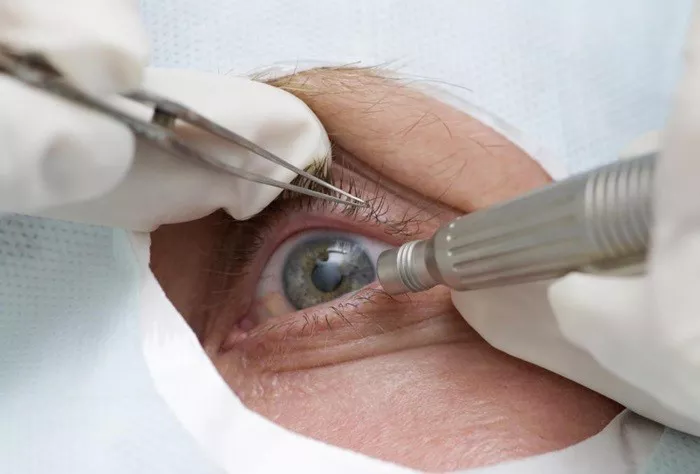Laser eye surgery is a significant procedure that can greatly improve your vision and quality of life. However, to ensure the best possible outcome, there are certain precautions you need to take before the surgery. Here are nine things you should never do before laser eye surgery to maximize your chances of a successful procedure.
1. Avoid Wearing Contact Lenses
Contact lenses can alter the shape of your cornea. It’s essential to stop wearing them before your pre-operative consultation and surgery.
Why You Shouldn’t Wear Contacts
Contact lenses, especially hard and gas-permeable ones, can temporarily change the curvature of your cornea. This can affect the measurements and calculations necessary for the surgery. Soft contact lenses should be discontinued at least two weeks before the consultation, while hard lenses may need to be avoided for several weeks.
Impact on Surgery
Wearing contacts can lead to inaccurate measurements of your eye’s shape, which is crucial for planning the laser treatment. Any alteration in corneal shape can result in suboptimal outcomes or the need for additional corrective procedures.
2. Do Not Use Makeup or Creams
Cosmetics and lotions can introduce particles and oils that may interfere with the procedure.
Risks of Makeup and Creams
Makeup, especially around the eyes, can introduce particles and oils that may cause infections. Creams and lotions can leave residues that might interfere with the surgery’s precision. It’s recommended to avoid these products for at least 24 hours before the surgery.
Preparing Your Skin
On the day of the surgery, your face should be clean, without any cosmetics, creams, or lotions. This reduces the risk of contamination and ensures that your eyes are free from any foreign substances that could complicate the procedure.
See Also: 8 Problems Laser Eye Surgery Can Solve
3. Refrain from Alcohol Consumption
Alcohol can dehydrate you and affect your body’s ability to heal.
Dehydration and Healing
Alcohol consumption can lead to dehydration, which can affect the healing process. Dehydrated tissues may not recover as quickly, and your eyes are no exception. Additionally, alcohol can interact with medications that may be prescribed post-surgery, such as antibiotics or anti-inflammatory drugs.
Timing Matters
Avoid alcohol for at least 48 hours before the surgery to ensure your body is in the best possible condition to heal and respond to the procedure.
4. Avoid Using Perfume or Cologne
Fragrances can contain alcohol and other chemicals that might irritate your eyes.
Chemical Sensitivity
Perfumes and colognes can contain alcohol and other chemicals that might irritate your eyes and surrounding skin. These substances can also interfere with the sterile environment necessary for the surgery.
Sterility and Safety
To maintain a sterile environment and reduce the risk of irritation or infection, avoid wearing any fragrances on the day of your surgery.
5. Do Not Ignore Pre-Surgery Instructions
Your surgeon will provide specific instructions tailored to your needs.
Customized Care
Each patient’s eyes and health conditions are unique. The pre-surgery instructions provided by your surgeon are customized to ensure the best possible outcome for you. These may include guidelines on medications, dietary restrictions, and specific preparations for the day of the surgery.
Importance of Compliance
Ignoring these instructions can lead to complications or less effective results. Ensure you understand and follow all pre-surgery guidelines provided by your healthcare provider.
6. Do Not Drive Yourself to the Surgery
Arrange for transportation to and from the surgical center.
Vision Impairment Post-Surgery
Immediately after the surgery, your vision may be blurry, and you may experience sensitivity to light. Driving yourself is not only unsafe but also against medical advice.
Safety First
Arrange for a friend or family member to drive you to and from the surgery. This ensures your safety and allows you to focus on your recovery.
7. Avoid Taking Certain Medications
Some medications can affect the surgery and your recovery.
Medication Review
Discuss all medications you are currently taking with your surgeon during your pre-operative consultation. Certain medications, such as blood thinners, antihistamines, or acne treatments, can affect the surgery or your healing process.
Adjusting Medications
Your surgeon may advise you to stop taking certain medications temporarily before the surgery. Follow these instructions carefully to minimize any risks.
8. Do Not Skip Meals
Proper nutrition is essential for your body’s healing process.
Energy and Recovery
Eating balanced meals before your surgery ensures that your body has the necessary nutrients and energy for the healing process. Skipping meals can lead to weakness and fatigue, which are not conducive to recovery.
Healthy Eating Guidelines
Consume a healthy, balanced meal before the surgery, avoiding excessive sugar or caffeine. This prepares your body for the procedure and supports your immune system.
9. Avoid Stress and Anxiety
Mental and emotional well-being can impact your physical health and recovery.
Stress Reduction Techniques
Engage in activities that help you relax and reduce stress, such as meditation, deep breathing exercises, or listening to calming music. Anxiety can affect your body’s ability to heal and respond to the surgery.
Preparation and Support
Discuss any concerns or anxieties with your surgeon beforehand. Understanding the procedure and having a support system can help reduce stress and promote a smoother recovery.
Conclusion
Preparing for laser eye surgery involves more than just the day of the procedure. By avoiding these nine things, you can ensure that your eyes are in the best possible condition for a successful surgery and recovery. Follow your surgeon’s instructions carefully, maintain a healthy lifestyle, and approach the surgery with a calm and prepared mindset. Your diligence and care in the pre-operative phase will significantly contribute to the overall success of your laser eye surgery.
Related topics:

